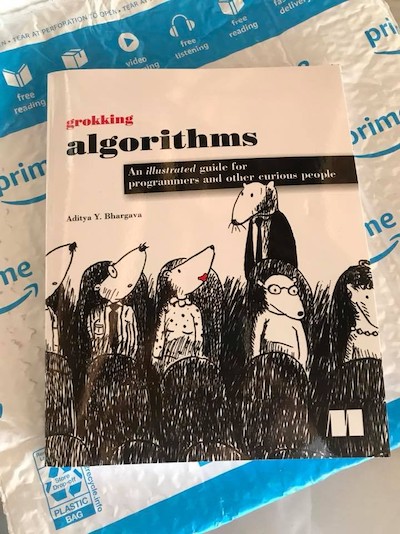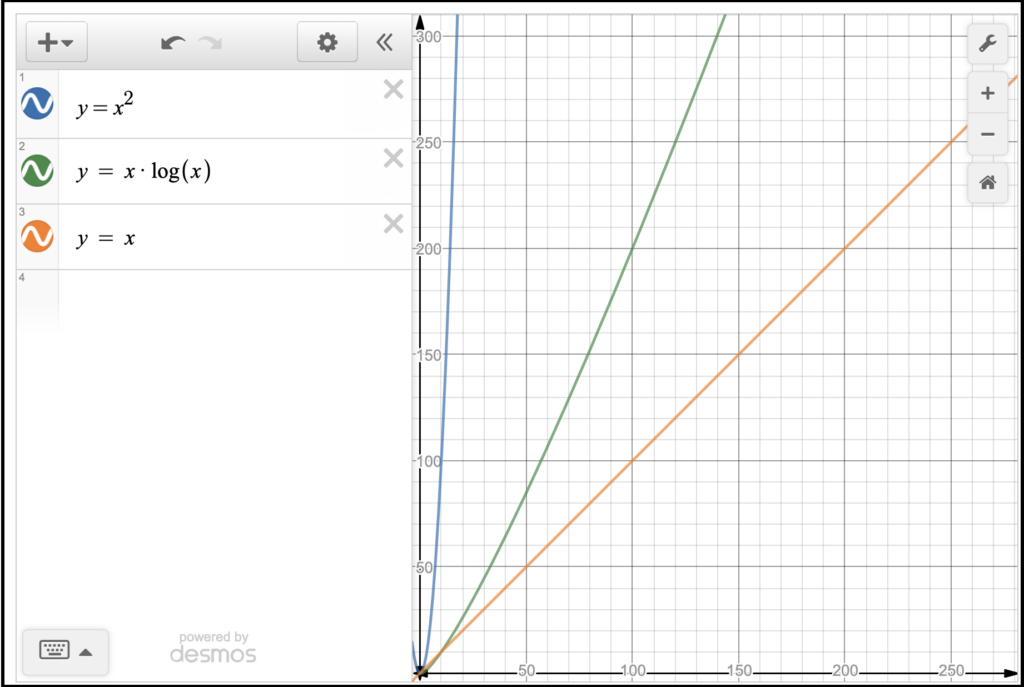
Write a function that takes in a non-empty array of integers that are sorted in ascending order and returns a new array with the squares of the original integers also sorted in ascending order.
let me add 4 solutions along with explanation.
// Bad solution, appending is expensive, it's better to init an array with the length
func sortedSquaredArray_solution1(_ array: [Int]) -> [Int] {
var sortedSquares = [Int]()
for value in array {
sortedSquares.append(value * value)
}
return sortedSquares.sorted()
}
// Time: O(nlog(n)) | Space O(n)
func sortedSquaredArray_solution2(_ array: [Int]) -> [Int] {
var sortedSquares = Array(repeating: 0, count: array.count)
for (idx, value) in array.enumerated() {
sortedSquares[idx] = value * value
}
return sortedSquares.sorted()
}
// same as before, but higher order functions is tuned for high performance
func sortedSquaredArray_solution3(_ array: [Int]) -> [Int] {
return array.map { $0 * $0 }.sorted()
}
// Time: O(n) | Space O(n)
func sortedSquaredArray_solution4(_ array: [Int]) -> [Int] {
var sortedSquares = Array(repeating: 0, count: array.count)
var smallerValueIdx : Int = 0
var largerValueIdx : Int = array.count - 1
for idx in stride(from: array.count - 1, through: 0, by: -1) {
let smallerValue = array[smallerValueIdx]
let largerValue = array[largerValueIdx]
if abs(smallerValue) > abs(largerValue) {
sortedSquares[idx] = smallerValue * smallerValue
smallerValueIdx += 1
} else {
sortedSquares[idx] = largerValue * largerValue
largerValueIdx -= 1
}
}
return sortedSquares
}for the following input
let myArraySortedSquares = Array(stride(from: -5000000, through: 5000000, by: 1))
Time elapsed for solution1: 6.786 s.
Time elapsed for solution2: 6.275 s.
Time elapsed for solution3: 5.106 s.
Time elapsed for solution4: 1.637 s. 🥇
First solution, used appending, which is expensive, second one, have a fixed size array with only writing, next, we reduce the time by using higher order functions that have performance tuned implementations out of the box like parallelism etc.
solution 4 can be optimized even more, you have an idea how?


